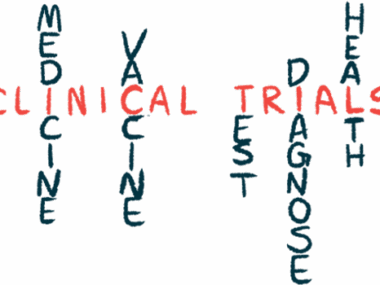FDA OKs Phase 2 clinical trial design of bezisterim for Parkinson’s
BioVie oral therapy to be tested as first-line, stand-alone treatment
Written by |

The U.S. Food and Drug Administration (FDA) has agreed on the design of the upcoming Phase 2 SUNRISE-PD clinical trial to test BioVie’s oral candidate bezisterim as a first-line, stand-alone treatment for newly diagnosed Parkinson’s disease patients.
Upon a protocol review, the agency recommended including assessments of motor skills in daily activities, as assessed by Part 2 of the Movement Disorder Society’s Unified Parkinson’s Disease Rating Scale (MDS-UPDRS), as a primary goal.
As this outcome was already included in the trial’s design as a secondary goal, BioVie believes no protocol amendments will be required for the clinical study.
“We are currently engaged in trial start up preparations, and hope to initiate patient screening in [the last three months] of 2024,” Cuong Do, BioVie’s president and CEO, said in a company press release.
“Our Phase 2a trial demonstrated that bezisterim in conjunction with levodopa may dramatically [improve] motor control for patients with moderate to severe symptoms of Parkinson’s disease. The Phase 2 SUNRISE-PD trial is designed to explore bezisterim’s impact on symptoms of Parkinson’s disease in patients who need medication for the first time,” Do said.
Earlier trial showed bezisterim eased patients’ motor symptom severity
In Parkinson’s, it is believed that inflammation in the brain, or neuroinflammation, can damage and contribute to the death of dopamine-producing nerve cells — the disease’s hallmark — and disease progression. Dopamine is a chemical messenger that allows nerve cells to communicate and, among other functions, helps regulate movement.
People with Parkinson’s often have brain insulin resistance, which occurs when brain cells aren’t as able to respond to the insulin hormone to use blood sugar for energy production. This is thought to contribute to neurological problems.
Bezisterim, previously known as NE3107, is a small oral molecule designed to reach the brain and promote anti-inflammatory and insulin-sensitizing responses. Originally developed by NeurMedix, its rights were acquired by BioVie in 2021.
An earlier Phase 2a trial (NCT05083260) tested the therapy against a placebo in 46 adults with Parkinson’s, ages 30 to 80. It was given twice daily as oral capsules, in combination with a standard carbidopa/levodopa regimen.
Results after about one month of treatment showed that the use of bezisterim led to a greater reduction in motor symptom severity as compared with the placebo, reflected by a 2.8-point greater score drop on Part 3 of MDS-UPDRS.
The easing of motor symptom severity was even greater among patients younger than 70, with a mean greater reduction of 4.7 points with bezisterim.
Further, the lessening of nonmotor symptoms, such as trouble falling or staying asleep, or an urge to move the legs, was also more pronounced among bezisterim-treated patients.
Approved Phase 2 clinical trial design calls for 3 months of testing
Now, the multicenter SUNRISE-PD clinical trial, with its cleared design, will evaluate the safety and efficacy of bezisterim as a first-line therapy in newly diagnosed Parkinson’s patients who have not received standard carbidopa/levodopa therapy.
As many as 60 participants will be randomly assigned to take an oral capsule of either 20 mg of bezisterim or a placebo, twice daily, for 12 weeks, or nearly three months.
Participants can choose whether they want to be monitored entirely at their home or at a clinical site. For those joining the trial from their home, nurses will visit periodically to conduct study assessments with the help of a neurologist who will join in via video.
Such assessments, including a modified Part 3 of the MDS-UPDRS to measure motor symptom severity, will be recorded for later revision and scoring by a central rating committee.
This Phase 2 study intends to address the newly diagnosed patient population, which in conjunction with our earlier trial, could establish bezisterim’s applicability for the total Parkinson’s patient population and provide a foundation for a disease progression study, which is the ultimate objective of the [Parkinson’s disease] program.
According to BioVie, if the trial’s findings are positive, participants may choose to join a longer-term safety study, in which all will be given the experimental therapy for a longer period.
“This Phase 2 study intends to address the newly diagnosed patient population, which in conjunction with our earlier trial, could establish bezisterim’s applicability for the total Parkinson’s patient population and provide a foundation for a disease progression study, which is the ultimate objective of the [Parkinson’s disease] program,” Do said.




